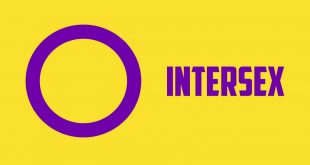Inarguably, the intersex community was not dealt an easy hand to play with. The secrecy, shame and social marginalization they deal with has built a kind of camaraderie that those who undergo sexual assignment surgery often face: guilt for leaving their comrades, PTSD and difficulty adjusting to their new life.
Today activists are trying to enlighten others while letting those with intersex traits and differences of sex development (DSD) know that there are people out there who are advocating for and supporting them. Activists like Jim Ambrose, Pidgeon Pagonis and Bo Laurent want them to know they are worthwhile individuals who deserve the same rights, respect and love as everyone else.
Co-founder of The Interface Project Jim Ambrose says of this, “It’s hard for people to wrap their head around what exactly is going on. It gets everywhere — it’s nothing but sprawl. It’s not limited to the bedroom.” The Interface Project is a website that collects personal anecdotes of those with DSD or intersex conditions. These conditions are not uncommon. According to the World Health Organization (WHO), one out of every 1,500 or 2,000 infants are born with a visible difference in sex organs. For instance, in cases where women have androgen insensitivity syndrome, they will have testes and an XY chromosome. Going as far back as the 50’s, doctors would often advise surgery on a baby born with analogous genitals. Girls were generally chosen as the surgical procedure is easier to perform.
Complications arose in later times with intersexuals as Doctors began to understand that although they had assigned a sex, many of those assigned to be girls actually felt more like boys. There were whole generations of DSD and intersex people growing up in the wrong bodies. Some felt estranged from their parents. Often they hid their genitals from romantic partners. Many were filled with shame, angst, guilt and repressed anger. Sadly, they had no one to turn to.
Today the DSD and intersex population is more accepted than ever before, but they still face strong obstacles. It is important for DSD and intersex people to come to terms with who they are and learn to love themselves. That said, it’s also critical to address the particular situation as early on and as honestly as possible. More education, outreach and anti-discrimination campaigns must be enacted to protect this often silent minority. They must learn their self-esteem is not relative to other’s opinions, rather their own so they may move towards a successful and joyous life.
 Lesbian, Gay, Bisexual, Transgender & Intersex News Lesbian News, Gay News, Bisexual News, Transgender News, Intersex News, LGBTI News
Lesbian, Gay, Bisexual, Transgender & Intersex News Lesbian News, Gay News, Bisexual News, Transgender News, Intersex News, LGBTI News




